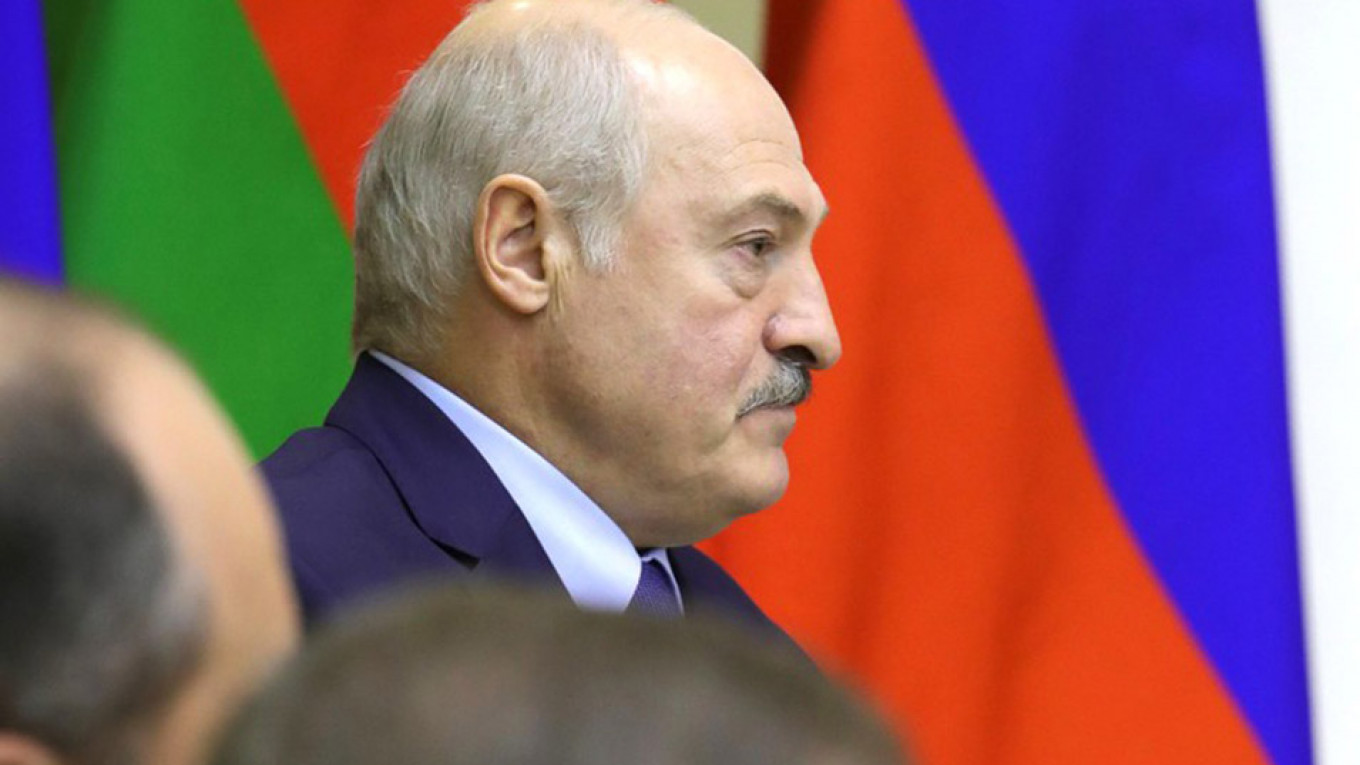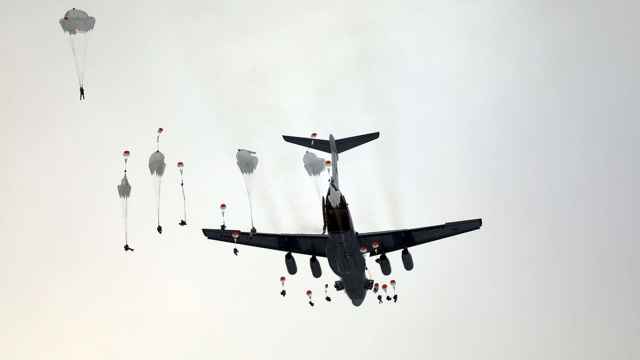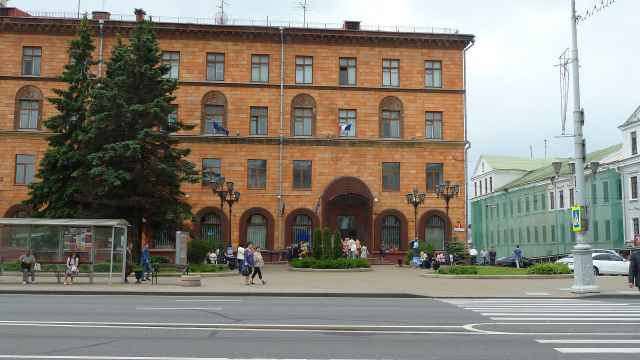Belarus believes that its ally Russia’s terms of integration are “unacceptable,” its foreign minister has said following media reports that the two countries plan to form an economic confederacy in the next two years.
Russia and Belarus, currently members of a largely symbolic union state, have been in talks to deepen their integration, a process that has fueled concerns of a possible quiet annexation by Moscow. The Kommersant business daily reported last month that the countries plan to unify their customs and energy policies by 2021 and establish a single tax code, civil code and list of foreign trade rules by 2022.
“Frankly speaking, [Russia’s] initial proposals stipulated the inclusion of certain provisions that were unacceptable, particularly for Belarus,” Vladimir Makei, Belarus’ foreign minister, told the RBC news website Tuesday.
Makei said the creation of supranational bodies as outlined in the proposals runs afoul of the 1999 Russian-Belarussian deal, which envisions a union state with a common currency, legal system and a joint defense and foreign policy.
Russian President Vladimir Putin and Belarussian President Alexander Lukashenko addressed the so-called supranational bodies earlier this year and “clearly said they don’t comply with the [1999] treaty’s provisions,” he said.
“We must pay more attention to implementing a coordinated agricultural and industrial policy — this is the most important thing,” Makei said. “There are no political issues whatsoever associated with the formation of a federation or a confederation.”
Russia props up the Belarussian economy with cheap energy and loans, but Minsk is wary of allowing too much Russian influence, fearing threats to its sovereignty.
A Message from The Moscow Times:
Dear readers,
We are facing unprecedented challenges. Russia's Prosecutor General's Office has designated The Moscow Times as an "undesirable" organization, criminalizing our work and putting our staff at risk of prosecution. This follows our earlier unjust labeling as a "foreign agent."
These actions are direct attempts to silence independent journalism in Russia. The authorities claim our work "discredits the decisions of the Russian leadership." We see things differently: we strive to provide accurate, unbiased reporting on Russia.
We, the journalists of The Moscow Times, refuse to be silenced. But to continue our work, we need your help.
Your support, no matter how small, makes a world of difference. If you can, please support us monthly starting from just $2. It's quick to set up, and every contribution makes a significant impact.
By supporting The Moscow Times, you're defending open, independent journalism in the face of repression. Thank you for standing with us.
Remind me later.






